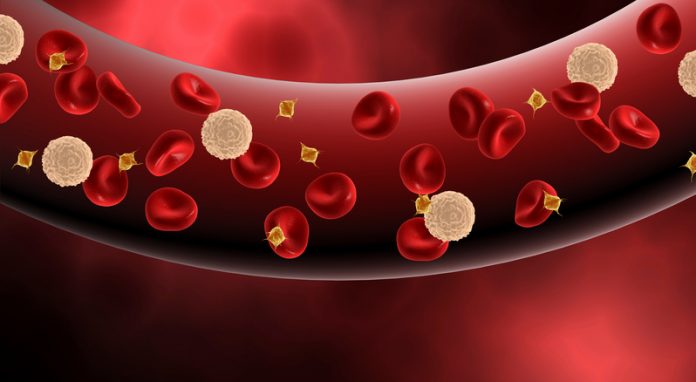
Pfizer today announced very positive results from a Phase III study of fidanacogene elaparvovec, an investigational gene therapy, for the treatment of adult men with moderately severe to severe hemophilia B. This caps off a breakthrough year for hemophilia B treatment, as the first gene therapy for this blood clotting disorder (CSL Behring’s Hemgenix) received FDA approval last month.
Hemgenix is now the world’s most expensive treatment, at $3.5 million per dose. More than 60 gene therapies are in clinical trials worldwide for both the A and B forms of hemophilia. A is the more common variety.
The BENEGENE-2 study met its primary endpoint for the annualized bleeding rate (ABR) post-fidanacogene elaparvovec infusion versus prophylaxis with Factor IX (FIX). There was a 71% reduction in ABR after a single dose of fidanacogene elaparvovec. The treatment was well-tolerated, with a safety profile consistent with Phase I/II results. No deaths, infusion-associated reactions, thrombotic events, or FIX inhibitors were reported.
“The burden people living with hemophilia B face is significant, with many receiving routine infusions or injections which can interfere with their ability to take part in day-to-day activities that many take for granted,” said Adam Cuker, MD, MS, Director, Penn Comprehensive and Hemophilia Thrombosis Program. “The BENEGENE-2 data demonstrate the promise of this gene therapy candidate as a potential one-time option for people living with hemophilia B as a means of reducing the clinical and treatment burden over the long term.”
Fidanacogene elaparvovec is a novel vector containing a bio-engineered adeno-associated virus (AAV) capsid (protein shell) and a high-activity human coagulation FIX gene. The goal of this gene therapy is that patients will be able to produce FIX via this one-time treatment rather than having to regularly receive exogenous FIX.
In this Phase III trial, eligible study 45 participants completed a minimum six months of routine exogeneous FIX prophylaxis therapy during the lead-in study (NCT03587116) and then received one intravenous dose of fidanacogene elaparvovec. Participants were screened with an assay designed to identify individuals negative for neutralizing antibodies to the gene therapy vector. Clinical trial participants will also be evaluated as part of a long-term study over the course of 15 years.
“Pfizer has more than 30 years of experience in developing and commercializing therapies for hematological disorders, and a deep understanding of the significant challenges that people living with hemophilia continually face. We are proud to advance the latest innovation for people living with hemophilia B and are encouraged by the potential of this investigational gene therapy,” said Chris Boshoff, MD, PhD, Chief Development Officer, Oncology and Rare Disease, Pfizer Global Product Development.
Pfizer currently has three Phase III programs investigating gene therapy in populations where there is a high unmet need: hemophilia B, hemophilia A, and Duchenne muscular dystrophy. Only 15% of hemophiliacs have the B type. Most have hemophilia A, which is caused by a factor VIII deficiency and has been harder to address.
Fidanacogene elaparvovec has been granted breakthrough, regenerative medicines advance therapy (RMAT), and orphan drug designations from the U.S. FDA, as well as PRIority MEdicines (PRIME) and orphan drug designation from the European Medicines Agency. Pfizer will discuss these data with regulatory authorities in early 2023.
Additional key data will be presented at a scientific conference in early 2023 as well.













